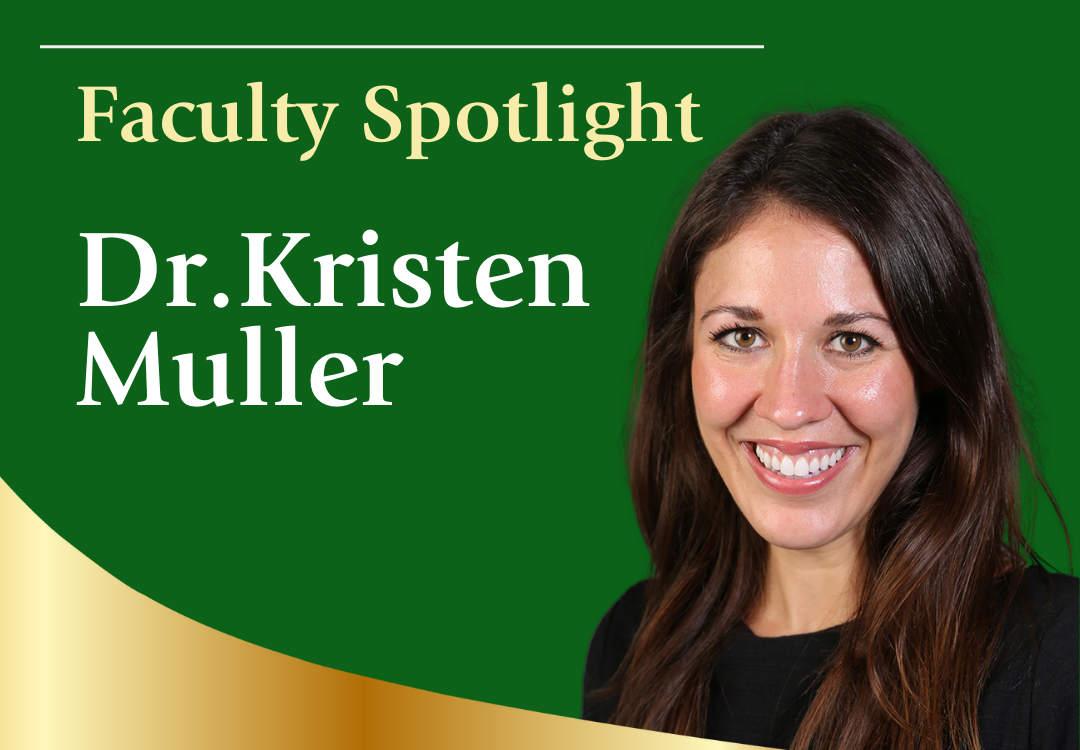Meet Assistant Professor Kristen Muller: Intellectual & Developmental Disabilities the Key to Her Research Focus

Dr. Kristen Muller is an Assistant Professor in the Department of Communication Sciences and Disorders and a Center affiliate. Dr. Muller’s schooling and experiences influenced her primary research focus on identifying appropriate assessment and intervention methods for individuals with intellectual and developmental disabilities (IDD) who are non-speaking or who have minimal verbal skills. This area of research has become a passion she enjoys and continues to share with families and students.
Dr. Muller received her Ph.D. from the University of Kansas and has been in the field for almost ten years. She has authored several publications and presented her research at local, state, and national conventions. Dr. Muller is a certified speech-language pathologist with experience working with individuals with complex communication needs in various clinical settings.
Her work experiences during her undergraduate studies drew her into the field of speech-language pathology. The summer after her freshman year of college, she worked as a recreation aid for Easterseals Arkansas Children’s Rehabilitation Center in Little Rock, Arkansas. Here, she saw many different professionals working with individuals with disabilities and became particularly interested in speech-language pathology. During her junior and senior years, she worked as a respite care provider for a young adult with autism who had minimal verbal skills. “His mother, a speech-language pathologist, encouraged me to get a Ph.D. in speech-language pathology. Her encouragement led me to continue my schooling towards a Ph.D.”
According to Dr. Muller, the term ‘minimal verbal skills’ refers to people who speak about 40 words or fewer. “It is difficult to accurately measure receptive language skills in this population due to issues with currently available assessments. Thus, access to accurate assessments is important because clinicians often use outcomes from receptive language assessments to inform intervention goals and identify the vocabulary offered in augmentative and alternative communication (AAC) systems.” She is currently working on a study that examines the feasibility of using eye-tracking technology to measure word-understanding skills in autistic children who are non-speaking or have minimal verbal skills. “The long-term goal of my work is to identify valid, strengths-based assessment methods for this population.”
Dr. Muller believes speech-language pathology is essential because communication is a fundamental part of life. Dr. Muller said, “Speech-language pathologists work with people across the lifespan and in many different settings, including hospitals, schools, and private practice. There are many career options for speech-language pathologists, and I consider it a gratifying profession.” After being in the field for about a decade now, getting texts from clients’ parents saying their child used their AAC system independently for the first time still puts a smile on her face and are some of her favorite memories.
Ultimately, Dr. Muller hopes that her research will inform strengths-based clinical practices that help improve the lives of individuals with disabilities who are nonspeaking or have minimal verbal skills and be beneficial for those in need.